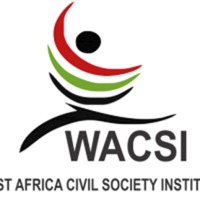Ms Nana Afadzinu, Executive Director, West Africa Civil Society Institute (WACSI) on Thursday said the institute was inaugurated in Nigeria to strengthen the civic space and encourage local donors.
Afadzinu at a news conference in Abuja announcing the establishment of WACSI in Nigeria said the move was a significant milestone for the Institute.
She said WACSI was conceptualised by OSIWA, in consultation with civil society in West Africa and set it up in 2005 with its base in Accra, Ghana.
According to her, the Institute began operations in 2007 with the mandate to strengthen civil society in West Africa to be responsive, collaborative, representative, resilient and influential through knowledge sharing, learning, connecting and influencing.
She said that with WACSI in Nigeria more opportunities would be opened for civil society in Nigeria.
“From a study, WACSI commissioned to ascertain the extent of the impact of COVID-19 on CSOs in Nigeria, it became evident that CSOs were significantly affected, negatively.
“Out of the 80 CSOs who took part in the survey, 38.4 per cent reported to have funding reductions from major donors.
“However, 58.1 per cent CSOs were unable to raise any domestic resources during the pandemic to complement external donor funding; 55.8 per cent of the CSOs agreed that they did not have the capacity to mobilise domestic resources.
“This revealed the fragility of the financial sustainability of many CSOs in the country.’’
Afadzinu said that it also pointed to the compelling need for CSOs to look inward towards reducing their dependency on foreign sources of support.
She said therefore, in the face of shrinking international support, it has become expedient to broaden the support base available and accessible to CSOs in the country to involve every Nigerian.
She said that WACSI being physically present in Nigeria now meant, Nigerian CSOs could easily access its services and trainings to build their capacity to be able to mobilise domestic resources and become sustainable.
She added that the pandemic also exposed the vulnerability of CSOs to digital security threats and the technological capacity gaps plaguing actors within the sector.
Afadzinu said that in response to the technological capacity gaps faced by CSOs in the country, the Institute, with support from TechSoup Global, donated 14 laptops to six organisations, relevant software, and training to enable effective use of these.
She said it was a pilot project that was notably beneficial to the institutions that benefitted from it and based on the results, WACSI was pursuing more opportunities to support needy civil society organisations in a like manner.
“Civic Space in Nigeria like many other West African countries is shrinking and creating a disenabling environment for civil society’s effectiveness.
“With support from the Ford Foundation, WACSI is implementing the Civic Space Resource Hub in collaboration with Spaces for Change to provide the needed resources to civil society actors to build their resilience and confront the civic space challenges.’’
Afadzinu said the programme targeted three West African countries, including Nigeria adding that Civil society actors in Nigeria were therefore key players in WACSI’s sphere of influence.
She said that Nigeria had a large number of civil society organisations in the country, comprising of approximately 46,000 non-governmental organisations and counting, across the six geo-political zones of the country.
She therefore said that given that number, it became evident to the board and management of WACSI that to be more responsive to the demands of civil society in Nigeria.
This ,she said necessitated the need to make the Institute’s services easily accessible and more affordable to civic actors in Nigeria.
Afadzinu said that WACSI node would act as a liaison office and connect civil society organisations and their partners to the various service offerings provided by WACSI.
She added that these included training, mentoring and coaching to strengthen capacity in institutional governance, management and operations of non-profit organisations; and this is not limited to NGOs.
She said WACSI would work on resourcing challenges for civil society organisations with a focus on exploring alternative sources of funding and strengthening local philanthropy.
She said that as a regional organisation, WACSI’s longstanding engagement with ECOWAS would also be enhanced with its presence in Abuja.
“In addition to launching the WACSI Node, the Institute will also hold a Tech event that will showcase what service offerings exist for civic actors in Nigeria.
“We are hopeful that WACSI node Nigeria, will bring us even closer and strengthen our long-standing relationship.
`Together we will work to build a strong, influential, resilient, and sustainable civil society sector in Nigeria, that can contribute effectively to the peace, security and prosperity of Nigeria and West Africa. (NAN)






